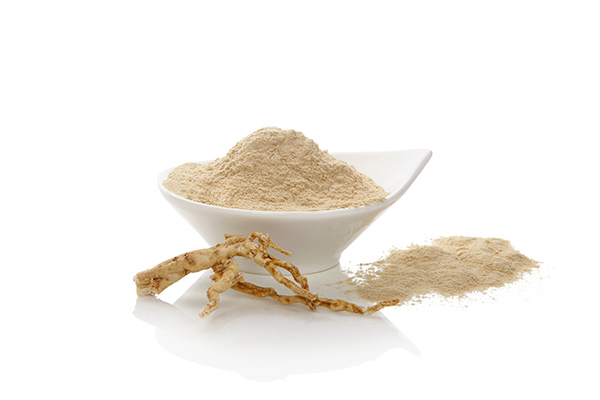-
Home > News & Events > Blog > Human Health
Calcium Deficiency and Osteoporosis: A Global Health Threat
Calcium is an essential trace element for the human body. It is not only a crucial component of bones and teeth but also participates in key physiological functions such as muscle contraction, nerve conduction, and blood clotting. However, calcium deficiency is highly prevalent worldwide, posing a significant public health threat. According to authoritative statistics, over 5 billion people globally suffer from insufficient calcium intake, with the elderly, women, and children being high-risk groups for calcium deficiency.
The impact of calcium deficiency on the human body is profound and progressive. Initial symptoms may include mild manifestations like muscle cramps, fatigue, and numbness, which are often easily overlooked. As calcium deficiency persists, osteoporosis quietly sets in. Osteoporosis is a skeletal disease characterized by reduced bone mass and deterioration of bone microarchitecture. The bones of patients become fragile and brittle; even minor bumps or falls can lead to fractures, causing immense pain and inconvenience to patients, while also imposing a heavy economic burden on families and society.
When discussing calcium supplementation strategies, relying solely on elemental calcium intake is far from sufficient. The absorption and utilization of calcium by the human body are influenced by various factors, among which protein intake plays a key role. Traditional protein sources, such as animal and plant proteins, while providing some nutrition, have limitations. Animal proteins contain relatively high levels of sulfur-containing amino acids, while the phytic acid in plant proteins can affect calcium absorption and utilization.
Yeast Protein: New Research Findings on Promoting Calcium Absorption and Improving Osteoporosis!
Among numerous novel protein sources, yeast protein stands out due to its unique advantages. Studies indicate that yeast protein possesses an excellent amino acid composition, with essential amino acids accounting for approximately 48% of the total amino acids, highly aligned with the ideal protein amino acid pattern. It is rich in glutamic acid, glutamine, alanine, and branched-chain amino acids (leucine, isoleucine, and valine), components that are significant for promoting calcium absorption and bone health. Angel Yeast Co., Ltd., in collaboration with Huazhong Agricultural University, conducted animal research on yeast protein's role in promoting calcium absorption and preventing osteoporosis. The research results were recently published in the Food Research International journal.

Promotes calcium absorption in normal individuals, enhancing bone function
Serum alkaline phosphatase (AKP) is a marker of osteoblast activity. An increase in its activity indicates enhanced osteoblast activity, promoting bone formation. Serum calcium (Ca) and serum phosphorus (Pi) are important markers for assessing calcium metabolism and bone health. The study found that in normal rats, supplementing with calcium alone or yeast protein alone increased osteoblast activity, and co-supplementation with yeast protein and calcium may have a better effect on promoting Ca and Pi absorption. It can also synergistically improve serum AKP levels and the absorption/utilization of Ca, thereby increasing serum Ca content.

Fig.1. Effects of yeast protein supplementation on serum AKP, Ca, and bone calcium content in normal rats
Trabecular and cortical bone are the spongy network and dense tissue of bones, respectively, crucial for bone strength, toughness, and mechanical integrity. The results showed that co-supplementation of yeast protein and Ca reduced trabecular bone vacuoles, increased cortical bone density and the amount of bone collagen, indicating a more complete bone structure, active bone metabolism, and enhanced bone strength and toughness. Compared to the normal control group, supplementation with yeast protein resulted in a denser and smoother femoral surface. Furthermore, co-supplementation was found to significantly promote an increase in the number of trabeculae, which aligns with the trend observed in bone calcium content results.

Fig.2. Effects of yeast protein supplementation on rat trabecular and cortical bone thickness
Enhances bone synthesis in low-calcium rats, improves gut health to promote calcium absorption
In studies on rats fed a low-calcium diet, it was found that supplementing with yeast protein increased the expression of bone formation markers (bone-specific alkaline phosphatase BALP, osteocalcin BGP, procollagen type I N-terminal propeptide PINP), thereby promoting bone synthesis. Additionally, it significantly improved bone length, bone dry weight index, maximum load, maximum stress, and bone calcium content in low-calcium rats. This demonstrates that yeast protein, yeast protein-calcium complex, and yeast protein hydrolysate (yeast peptides) can all synergize with calcium to promote bone growth, enhancing bone mineralization and fracture resistance.

Fig.3. Partial analysis results of serum indicators and evaluation tables in low-calcium rats
The low-calcium diet also impacted the intestinal health of the rats. The results indicated that intervention with yeast protein-calcium and yeast peptides significantly improved the gut health of low-calcium rats, specifically manifested as: increasing the number of intestinal goblet cells, promoting the repair and regeneration of the intestinal mucosa; increasing intestinal villus height and villus area, improving intestinal absorption function; reducing crypt depth, promoting the proliferation and repair of intestinal epithelial cells. The synergistic effect of yeast protein-calcium was superior to that of the calcium supplementation alone group, indicating that yeast protein has significant advantages in promoting gut health and calcium absorption.

Fig.4. Yeast protein improves the intestinal environment of low-calcium rats
Yeast Protein Ushers in a New Future for Bone Health
Although yeast protein has already demonstrated immense potential in promoting calcium absorption and improving osteoporosis, current research has only revealed a fraction of its capabilities. Future studies will delve deeper into the interactions between yeast protein and the gut microbiota, further elucidating the specific molecular mechanisms and clinical manifestations of how yeast protein promotes calcium absorption and bone synthesis. This will provide crucial information for developing more targeted nutritional intervention strategies, promising revolutionary breakthroughs in the prevention and treatment of osteoporosis.
As an emerging functional food and nutritional supplement, yeast protein, with its outstanding efficacy in promoting calcium absorption and improving osteoporosis, is expected to gain wider application and promotion globally. Angel Yeast will continue to dedicate itself to the research, development, and production of yeast protein, providing consumers with more healthy and delicious food options. Simultaneously, it will drive the application of yeast protein in more fields, contributing to the innovative development of the food industry, helping people achieve the vision of bone health and improved quality of life, and leading the way into a new future for bone health.
References:
1. Beal, T., Herforth, A., & Kennedy, G. Global estimation of dietary micronutrient inadequacies: a modelling analysis. The Lancet Global Health. (Note: Corrected author order based on common citation)
2. Office of Dietary Supplements. (n.d.). Calcium. Retrieved August 6, 2025, from https://ods.od.nih.gov/factsheets/Calcium-HealthProfessional/
3. Shlisky J, Mandlik R, Askari S, et al. Calcium deficiency worldwide: prevalence of inadequate intakes and associated health outcomes. Ann N Y Acad Sci. 2022 Jun;1512(1):10-28. doi: 10.1111/nyas.14758.
4. Liang, Y., Cheng, Q., Chen, Z. X., & Hou, T. (2025). Effects of yeast protein on the promotion of intestinal calcium absorption (in vivo/in vitro) and bone formation (in vivo) in rats fed by normal and low-calcium diets. Food Research International, 117179. https://doi.org/10.1016/j.foodres.2025.117179
| Published by Yan Jun Engineer of Nutrition and Health Division |
About Angel Human Health:
Specialized in yeast and fermentation, AHH is committed to developing innovative, differentiated, science-based functional ingredients and customized solutions, to help our customers get enduring success, as well as contribute to a healthier and sustainable world together.
About Angel:
Angel Yeast Company is a high-tech listed company specializing in yeast and biotech. Product business covers Yeast and Baking, Yeast Extract-Savoury, Nutrition & Health and Biotechnology fields. It is one of the world's leading companies in the yeast industry. Angel has 12 holding subsidiaries and provides products and services for more than 170 countries and regions.
Press Contact:
ANGEL YEAST CO., LTD
Address: 168 Chengdong Avenue, Yichang, Hubei 443003, P. R.China
Tel: +86 717 6369570
Email: Nutritech@angelyeast.com








